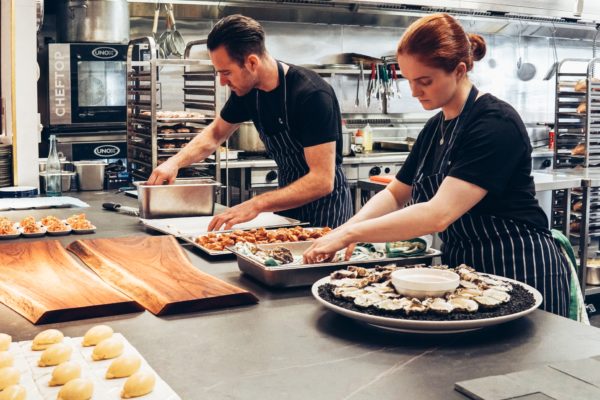Introduction
The emergence of on-demand food delivery services has revolutionized the way we order and enjoy our favorite meals. One key factor driving this revolution is the rise of cloud kitchens. In this blog post, we will discuss cloud kitchens and their significant impact on the on-demand food delivery business.
Cloud kitchens
Cloud kitchens are also known as virtual kitchens, ghost kitchens, or dark kitchens. These are professional food preparation and cooking spaces designed exclusively for delivery and takeout orders. Unlike traditional brick-and-mortar restaurants, cloud kitchens operate without a physical dining area, focusing solely on fulfilling online orders.
These kitchens are strategically located in areas with high demand. They are also equipped with state-of-the-art equipment to accommodate multiple food brands under one roof.
Benefits
Cloud kitchens eliminate the need for expensive restaurant and reduce operational costs. These cost reduction can be in maintaining a physical dining area, etc. With ghost kitchens strategically positioned in various locations, businesses can expand their delivery radius, reaching a larger customer base without the constraints of physical proximity. These operational cloud kitchens can be added in your food delivery app script or clones like Swiggy clone script, Zomato Clone, Grubhub clone, etc.
Ghost kitchens offer unparalleled flexibility, allowing businesses to test new concepts and menu items without the risks associated with opening a new restaurant. Moreover, scaling operations becomes easier as cloud kitchens can accommodate multiple food brands simultaneously.
Operations

By focusing solely on delivery orders, ghost kitchens can optimize their processes and streamline operations, resulting in faster order fulfilment and improved customer satisfaction. Ghost kitchens leverage technology to collect and analyze data on customer preferences, ordering patterns, and sales performance.
These insights enable businesses to make informed decisions and tailor their offerings to meet customer demands effectively. You can add these operational cloud kitchens in your food delivery apps or clones like Swiggy Clone, Zomato Clone, UberEats Clone etc.
Challenges
While offering numerous advantages, they also present some challenges. For instance, visibility can be a concern since there is no physical storefront. However, businesses can overcome this challenge by investing in digital marketing strategies such as search engine optimization and social media advertising to increase their online presence and attract customers.
Additionally, operational efficiency is crucial to success. Implementing efficient kitchen management systems, optimizing delivery logistics, and utilizing advanced technology for order tracking can help streamline operations and ensure timely deliveries.
Bottom line
Cloud kitchens have revolutionized the on-demand food delivery business by offering cost-efficiency, scalability, and streamlined operations. By leveraging technology and data-driven insights, businesses can thrive in this evolving industry. As the demand for online food delivery continues to grow, they are poised to play a vital role in shaping the future of the food service industry.